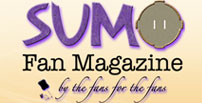|
||||
|
||||
|
||||
|
||||
|
||||
|
||||
|
||||
|
||||
|
||||
|
||||
|
||||
|
||||
|
||||
|
||||
|
||||
|
||||
|
||||
|
||||
|
||||
|
||||
1. Takashi Shimako (Japan)
2. Madis Sihimets (Estonia)
3. Khayaa Tyulyush (Russia) and Artiom Pocinoc (Moldova).
Heavyweight (+100kg, +220 lbs)
1. Masahiro Yamaguchi (Japan)
2. Visesio Sakalia (New-Zealand)
3. Rokas Adomaitis (Lithuania) and Vladimir Petrov (Russia)
Open Weight
1. Takayuki Sakuma (Japan)
2. Soslan Kobesov (Russia)
3. Mark Tanu (New-Zealand) and Sandagdorj Bold (Mongolia)
Team
1. Japan
2. Poland
3. Ukraine and Russia
The other major tournament in Europe was held just a week later in the eastern German town of Riesa. The 12th European Championships were held over two days, with the open weight competitions and the team competitions for both men and women held on the Sunday and the other divisions on the Saturday. Unlike the world championships, the European Championships allows more than one competitor from each country in each weight class, and all competitors may compete in the open weight division. As such, Russia (in addition to winning both teams competitions) won 12 of the 32 individual medals available. The split was six apiece between the men and the women, but the women’s’ haul of four gold and two silver surpassed the men’s two gold, one silver, and three bronze.
Most of the names of the medal winners, Russian or not, were familiar from previous victory lists
However, many countries in Europe supported the opportunities that the WSL provided for their athletes and so, there was no ban from competing in European Sumo Union events. So, while athletes such as Petar Stoyanov (heavyweight gold and open weight bronze) and Stilian Georgiev (lightweight bronze), both Bulgarians, and Germans Jorg Brummer and Torsten Scheibler appeared on the dais in Riesa, they were not eligible for Osaka. Just how long this ban remains in place, or whether it is a lifetime ban, has not been made public and may not have been decided by the upper echelons of the IFS. It may be a case of waiting until next year to see, and I’m sure a lot of water will pass under the bridge before then!!
12th European Sumo World Championships Results
Women
Lightweight (-65kg, -143 lbs)
1. Nelli Vorobieva (Russia)
2. Ewelina Lasecka (Poland)
3. Paola Boz (Italy) and Claudia de Graauw (Netherlands)
Middleweight (-80kg, -176 lbs)
1. Svetlana Panteleeva (Russia)
2. Nadeshda Sementzova (Ukraine)
3. Nicole Hehemann (Germany) and Dariya Ibragimova (Ukraine)
1. Olessya Kovalenko (Russia)
2. Ekaterina Keyb (Russia)
3. Edyta Witowska (Poland) and Olga Davydko (Ukraine)
Open Weight
1. Anna Zhigalova (Russia)
2. Olessya Kovalenko (Russia)
3. Sandra Köppen (Germany) and Olga Davydko (Ukraine)
Team
1. Russia
2. Ukraine
3. Bulgaria and Germany
Men
Lightweight (-85 kg, -187 lbs)
1. Peer Schmidt-Düwiger (Germany)
2. Igor Kurrinoy (Russia)
3. Kann-Demir Kuular (Russia) and Stilian Georgiev (Bulgaria)
Middleweight (-115 kg, -254 lbs)
1. Alan Bibilov (Russia)
2. Istvan Kalmar (Hungary)
3. David Tsallagov (Russia) and Todor Dzhurov (Bulgaria)
Heavyweight (+115 kg, +254 lbs)
1. Petar Stoyanov (Bulgaria)
2. Haitham Alsadi (Netherlands)
3. Dezsö Libor (Hungary) and Alan Gabaraev (Russia)
Open Weight
1. Alan Karaev (Russia)
2. Robert Paczkow (Poland)
3. Dezsö Libor (Hungary) and Petar Stoyanov (Bulgaria)
Team
1. Russia
2. Bulgaria
3. Netherlands and Poland
Home




